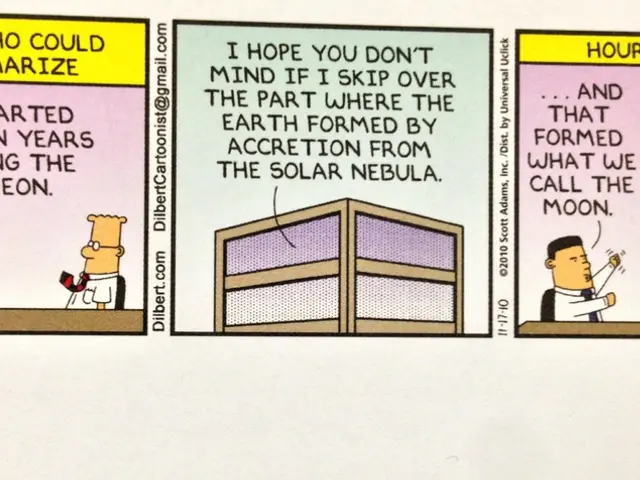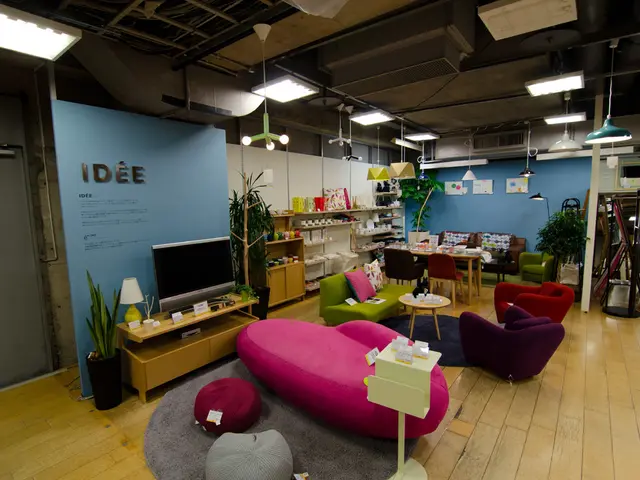Renewable energy sources are causing a significant decrease in the expanse of dark seas worldwide.
Protecting against those dreaded doldrums, those times devoid of sun and wind, is a challenge modern society must confront. Simone Peter, president of the Federal Association of Renewable Energies (BEE), believes the solution lies in expanding solar and wind power, a seemingly counterintuitive approach that's gaining traction.
Peter emphasizes the importance of shunning investments in fossil or nuclear power plants as reserve energy sources for Germany. Why? They're too costly, she says. The need for these energy sources is minimal, primarily for a few hours of annual demand. Focus should instead be on procuring renewable energy sources from various regions.
Despite the recent media focus on doldrums, Simone Peter sees the situation optimistically. Last year, over 125% of Germany's electricity consumption was generated by renewable energy on New Year's Day. The high share of green electricity resulted in low CO2 emissions and wholesale electricity prices dropping to zero or even below.
The expansion of renewable energies in Germany and Europe has also compensated for the nuclear phase-out. The current issue of doldrums, however, has predominantly filled news headlines because of a few days with little wind and sun. But the overall analysis by Agora Energiewende reveals that last year's renewable energy expansion caused the wholesale electricity price to decrease by 18% or 17 euros per megawatt-hour compared to 2023.
Simone Peter emphasizes the importance of further reducing the few hours of doldrums. However, she stresses that this is not a question of supply security. There is always a sufficient fossil capacity to ensure power delivery. These backup options have not been promoted as extensively as renewable energy production, leading to high exchange prices during dark doldrums.
The traffic light coalition's power plant strategy should be reconsidered in conjunction with the power market design, focusing on promoting flexibility in consumption and supply. Simone Peter believes in the decentralized system, consisting of biogas plants, batteries, large and small storage systems, hydropower, and geothermal energy. Sector coupling can also produce hydrogen in times of abundant green power, which can later be converted back into electricity.
The lack of a grid expansion required for this decentralized system poses a significant challenge, with costs rapidly escalating. Simone Peter explains that grid expansion has made substantial progress in recent years, and fortunately, innovation is the future. The global development of electric cars and heat pumps is inexorable; China alone is building massive capacities for renewable energy, batteries, and electric cars.
If traditional energy sources fail to deliver during extended doldrums, Simone Peter staunchly advocates for transitioning to renewable energy sources. She is skeptical of countries like China hedging their bets by building both renewables and coal power plants, as renewable energy will inevitably prevail in the long run.
So, while doldrums remain a concern, the prevailing wisdom advocates for transitioning from fossil fuels to renewable energy sources. Innovative solutions like battery storage, energy storage through biogas plants, smart meters, and dynamic tariffs, and a decentralized energy supply system, will ultimately drive the future of power generation.
Simone Peter advocates against investing in fossil or nuclear power plants as reserve energy sources due to their high cost and minimal need, preferring to focus on procuring renewable energy from various regions. In light of the recent success in generating over 125% of Germany's electricity consumption from renewable sources, she emphasizes the importance of further reducing the few hours of doldrums, believing in the potential of a decentralized system that includes renewable energy sources and innovative technologies like battery storage.







